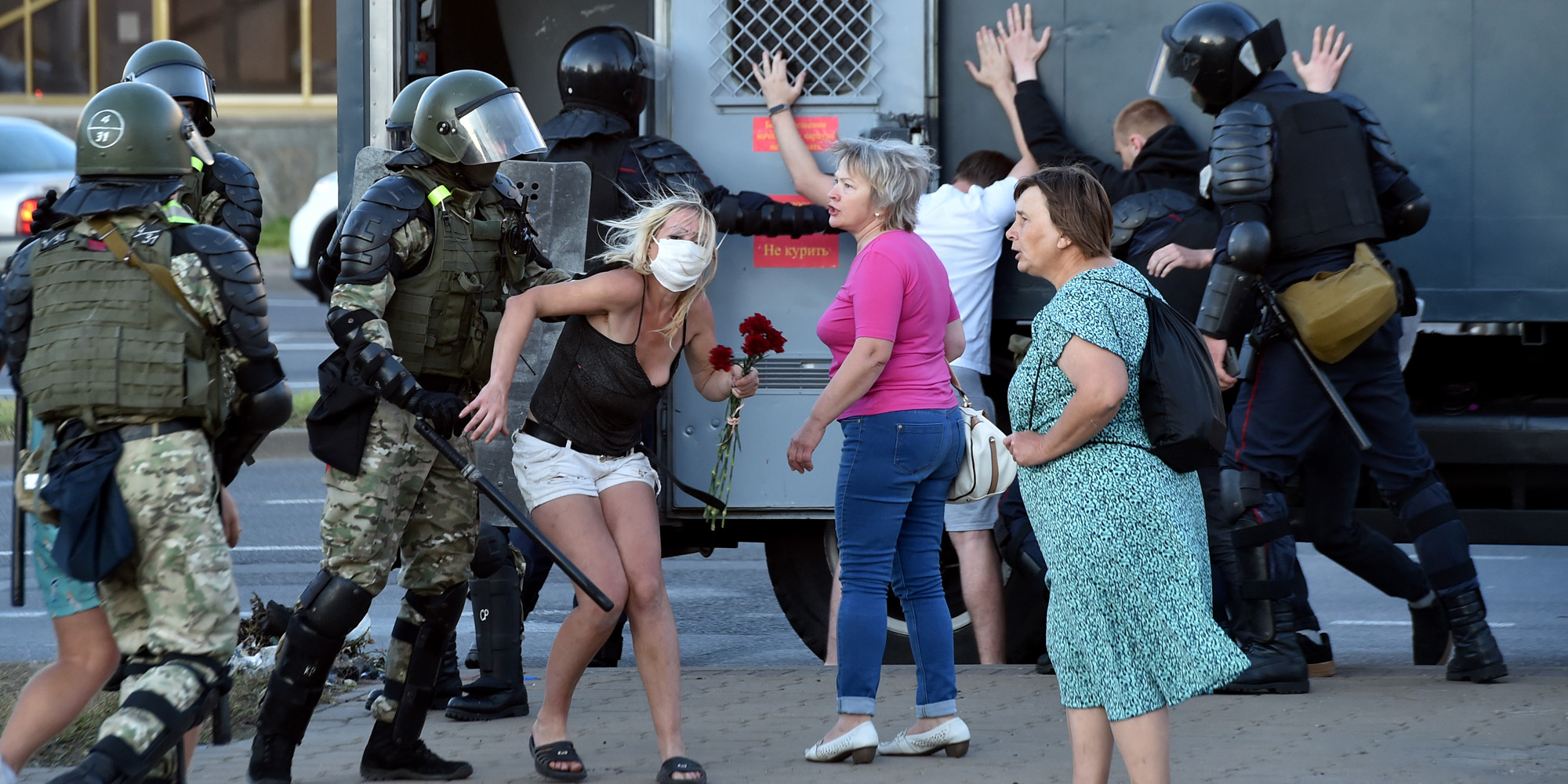In Belarus, arrests are increasing after demonstrations by opponents, harshly repressed by the police. While former candidate Svetlana Tsikhanovskaï, who is contesting the re-election of President Alexander Lukashenko, is still on the run in Lithuania, the government says opposition rallies are in decline. However, at midday on Wednesday, the police announced that they had injured another person while firing with firearms. So far, riot squads have claimed to use only rubber bullets to shoot at crowds.
More than 6,000 arrests
The international community now fears an escalation of violence after three nights of protest and repression of demonstrators who have invaded the streets of Minsk, but also the main provincial towns to demand democracy. They continue to denounce an election described as a "masquerade". According to the official results of Sunday's election, Alexander Lukashenko obtained more than 80% of the vote, a fanciful score, say his detractors, who estimate on the contrary that Svetlana Tikhanovskaya, credited with 10% of the vote, won the ballot. Since Sunday, the police have reported more than 6,000 arrests.
>> Find all the newspapers of the editorial staff of Europe 1 in replay and podcast here
An EU meeting on Belarus
The White House says it is greatly concerned by this intimidation of the opposition which is tainting the electoral process. Same concern on the part of the European Union: the 27 denounce disproportionate and unacceptable violence. They are threatening the country with sanctions, whereas they were lifted in 2016. At the end of August, Belarus will therefore be on the agenda of an informal meeting of European Union foreign ministers.
In Vilnius, where Svetlana Tsikhanovskaï took refuge in the night from Monday to Tuesday, the Lithuanian Minister of Foreign Affairs is asking for an exemplary response to the repression against the Belarusian population. It is, according to him, a "moral obligation" for the democratic world.

